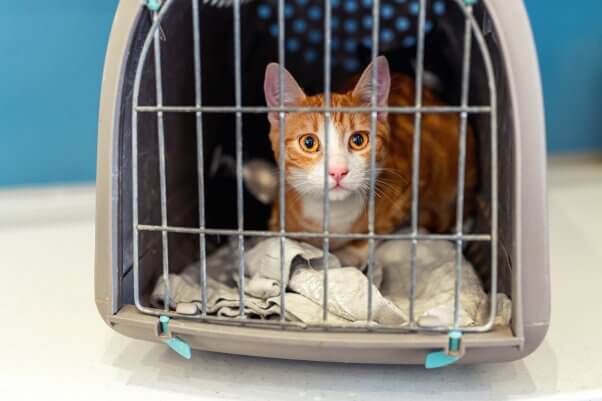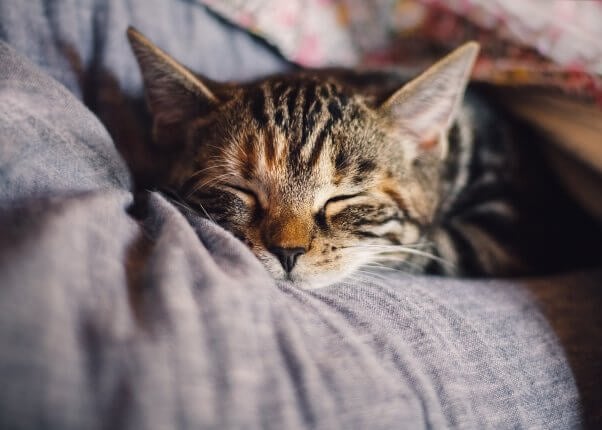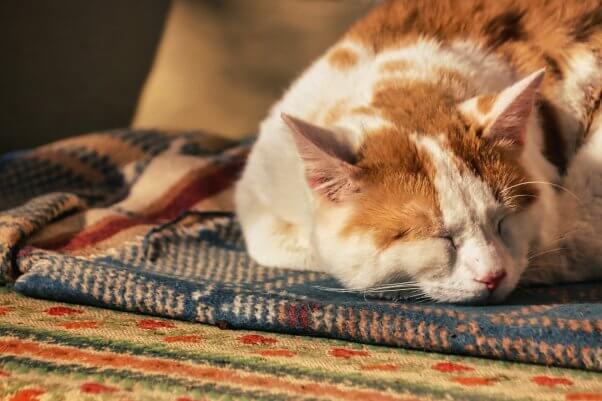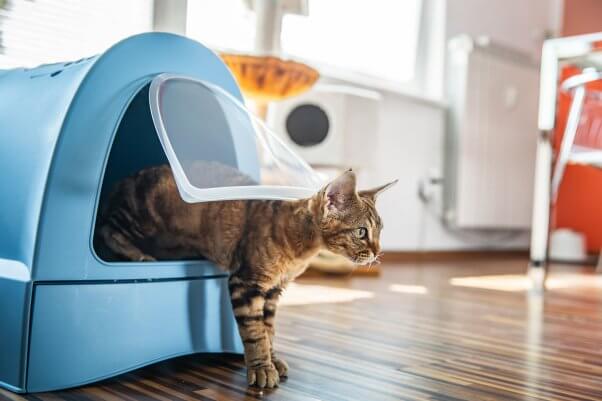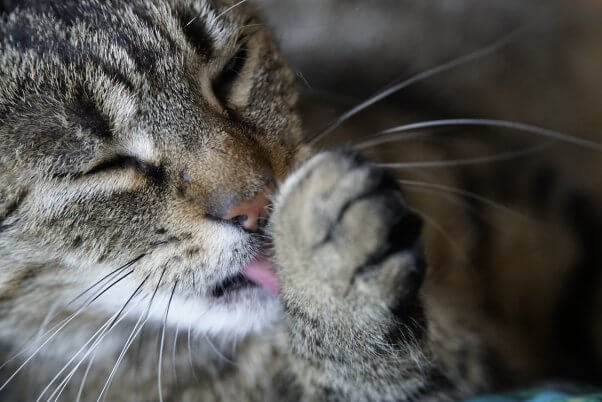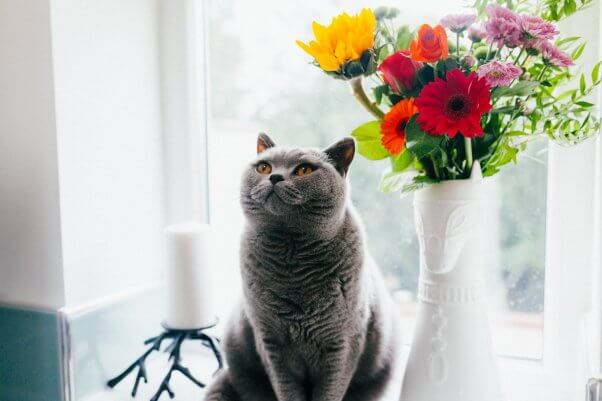Adapted from 250 Vital Things Your Cat Wants You to Know by Ingrid Newkirk. Get your copy today at PETA.org/250Things.
Is your cat “thinking outside the box”? Your feline family member is sending you an important message—never ignore it. Here are 10 things Kitty may be trying to tell you, plus other tips from the “cat guardian’s bible.”
1. “I’m stressed.”
Changes like moving, traveling, becoming ill, or even their human wearing a new perfume can cause sensitive animals like cats profound anxiety. Take the time to understand what’s upsetting Kitty and change it if you can. Products like Bach’s Rescue Remedy (a calming mixture of flower essences) and Feliway (which emulates a natural calming pheromone) may also help soothe your stressed friend.
2. “I miss you.”
Cats are emotional individuals. They feel jealous, sad, and lonely if you’ve been ignoring them due to a new romance, a new baby, another animal, or because your job keeps you away all day and activities keep you out late. Never punish your hurting friend. Instead, get the message and spend time with your cat every single day, playing, grooming, cuddling, and telling them how perfect they are.
3. “I’m in the mood for love.”
If Tom or Tabitha hasn’t been “fixed,” hormones may be the reason for their spraying and other unwelcome litterbox behavior. Spare your cat the frustration of wanting to mate but not being able to—and prevent more kittens from being born into a world that’s already short on good homes—by making an appointment to have your friend spayed or neutered ASAP.
4. “I’m in pain.”
Cats suffering from cystitis or a urinary tract infection—both of which can be very painful and even life-threatening—may urinate in odd places, such as on ceramic or tile surfaces like a tub or a sink. Has your cat found a way to show you what you can’t see in the box: a drop of blood in their urine? With any litterbox problem, the first thing to do is consult your vet to rule out a serious health issue.
5. “I need my space.”
Multi-cat households require at least one pan per cat, plus one, to prevent inter-cat squabbles and long lines at the bathroom.
6. “I resent being banished.”
Never allow yourself or anyone else to push your cat off the couch or bed or to say the equivalent of “Go away,” even during intimate moments. Not only is it rude, it’s also sure to hurt your cat’s feelings. And cats who have been banished from a particular place may resort to sending you a message that you can’t ignore—by eliminating in that very spot.
7. “I don’t like this setup.”
Every cat has preferences. The cats at PETA’s Virginia headquarters love corn cob–based litter, which is easy to clean up. Other cats like alfalfa, grass, or coconut-hull litter. Some cats prefer covered litterboxes, while others like theirs open. Placement matters, too: Be sure the box has an escape route and is situated in a quiet area. Experiment to see what your cat prefers.
8. “My joints ache, and I can’t make it to the litterbox in time.”
You wouldn’t force your elderly grandparents to descend the basement stairs every time they needed to use the bathroom, would you? Don’t make your aging kitty do so, either. Keep litterboxes near high-traffic areas. And if your cat likes enclosed litterboxes, buy or make an attractive litterbox cabinet that can stay in your main living area. Cabinets can reduce litter tracking and also prevent dogs from “foraging” in the box.
9. “Are you sure this is safe?”
Clay litter is traditional, but some experts believe it may clump and harden inside cats’ digestive tracts, causing painful and potentially fatal blockages. Never use it with kittens, who are curious and like to explore their surroundings with their mouths. Also avoid pine-based cleaners, which can be toxic to cats.
10. “This stinks.”
Cats’ noses are very sensitive, and their waste can be pungent. Would you want to step barefoot into Kitty’s litterbox? Scoop solid waste at least twice daily. At least once a week, dump out the box completely, scrub it with vinegar, wash it with soap, and thoroughly rinse and dry it. Avoid self-cleaning boxes: Some cats are frightened of them or can smell the waste stored underneath, and such boxes make it impossible to keep tabs on Kitty’s “output,” which can provide important health clues.
Take Action Now
Make all nine of your cat’s lives as happy and fulfilling as possible: Order 250 Vital Things Your Cat Wants You to Know at PETA.org/250Things. Better yet, get several copies to share with your feline-fancying friends.


